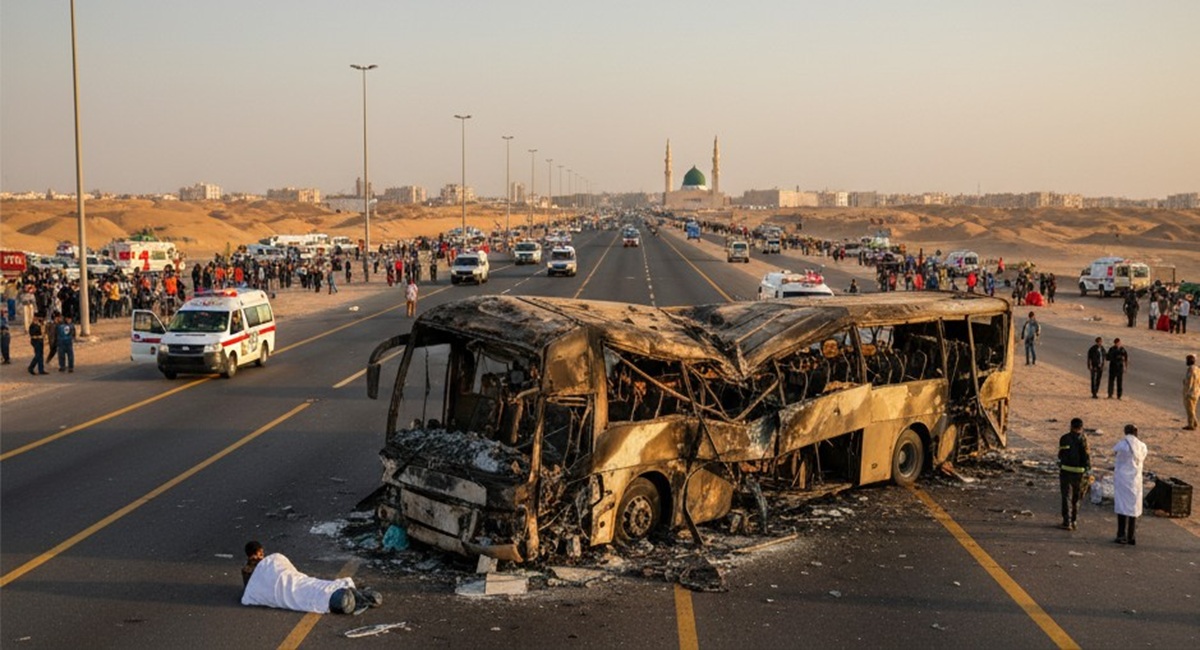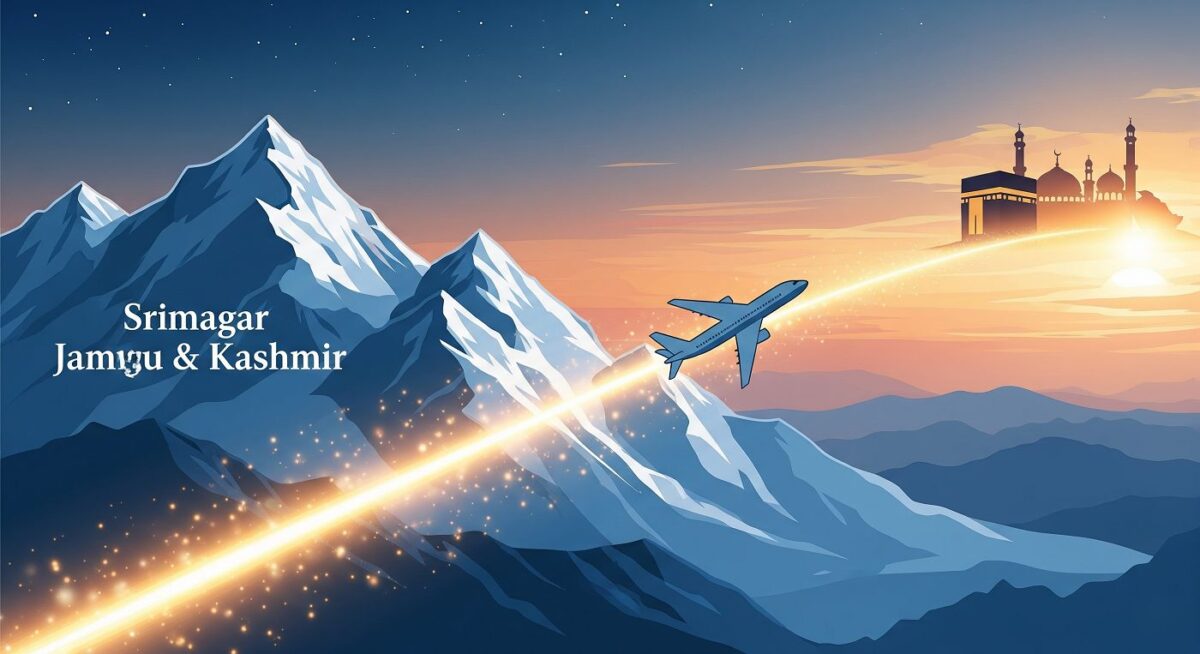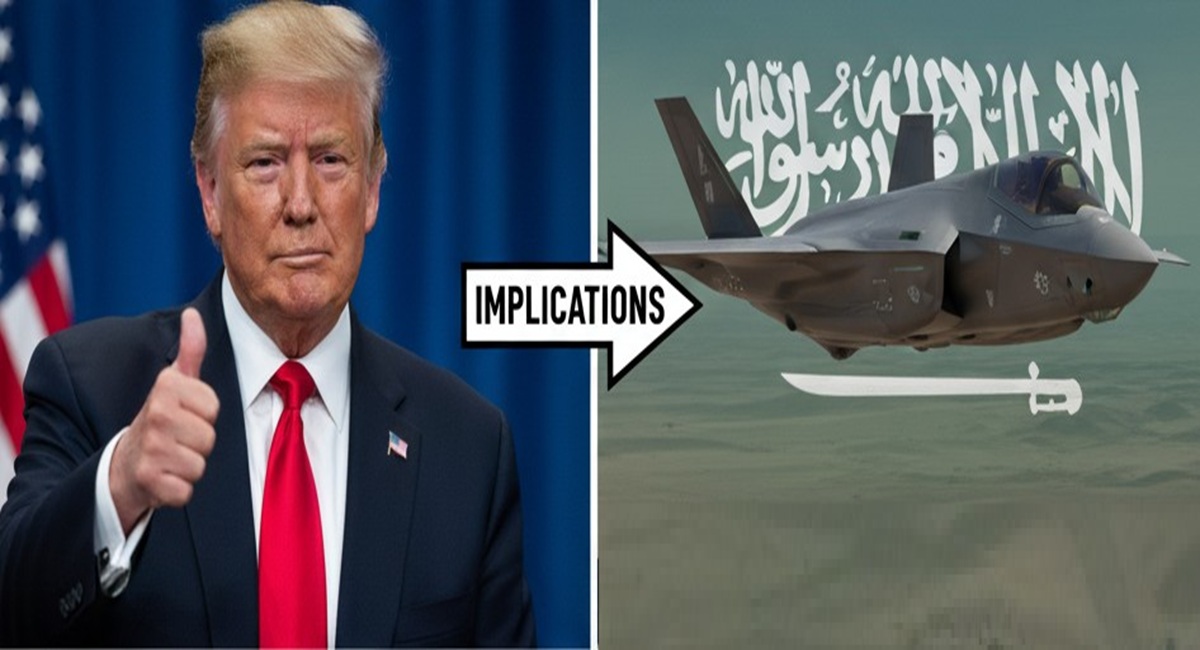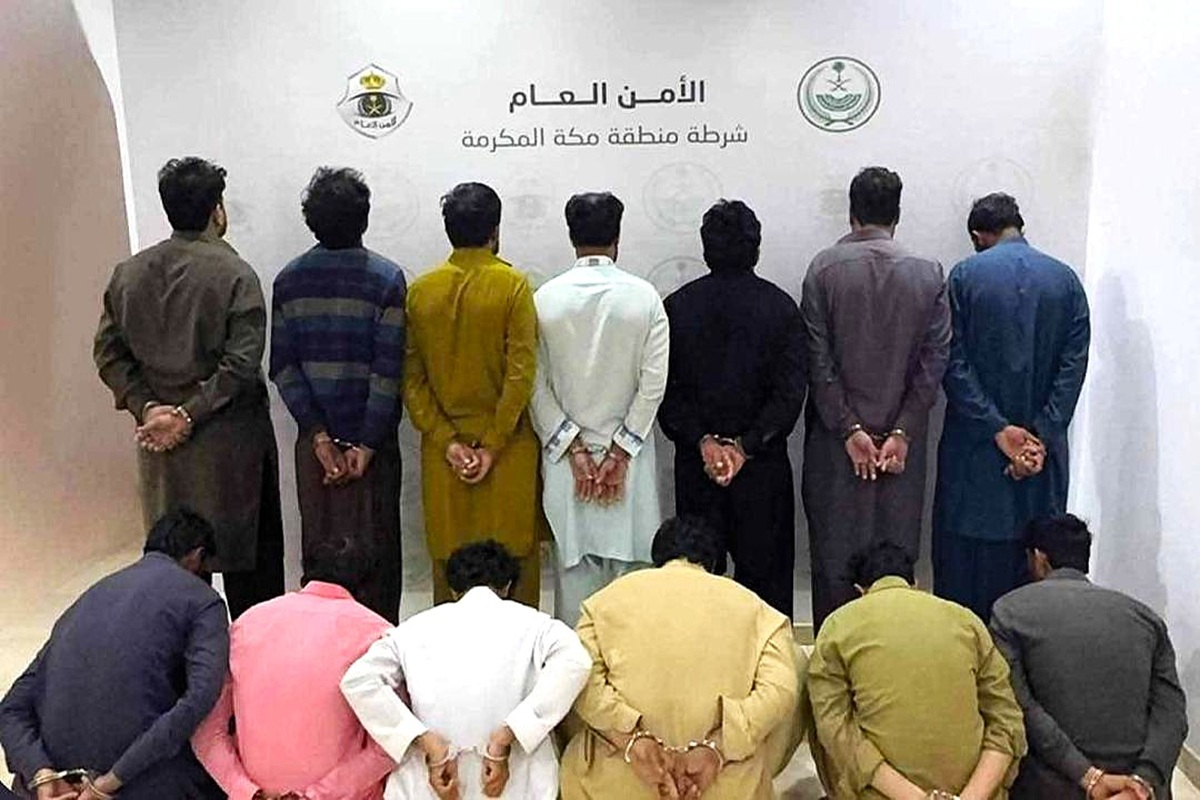A tragic road accident on Monday early morning has claimed the lives of dozens of Indian Umrah pilgrims on a bus traveling from Makkah to Madinah. According to multiple media reports, at least 45 people died after the bus collided with a diesel tanker and burst into flames near Medina. The crash has triggered an outpouring of grief, raised urgent safety questions, and put a spotlight back on road fatality risks in Saudi Arabia.
The Incident
The collision reportedly occurred around 1:30 a.m. local time, on the highway between Mecca and Medina. According to early reports, many of the victims were Indian nationals, predominantly Umrah pilgrims — including women and children — believed to be from Hyderabad in Telangana. One survivor has been reported, now receiving treatment in hospital.
Indian authorities have responded quickly. The Consulate General of India in Jeddah has established a 24-hour emergency control room to assist families with information and coordination. The Indian Minister of External Affairs expressed condolences and said the embassy in Riyadh, together with the consulate, is providing full support.
On the regional front, the Telangana government (which many of the pilgrims are said to be from) has set up a control room to coordinate with relatives and liaise with Indian and Saudi authorities. Some grief-stricken family members are calling on the Indian government to help repatriate the bodies of the victims.
Response from Saudi Authorities
Saudi civil defense teams, police, and rescue units were dispatched to the crash site and are reported to be working on recovery efforts. However, so far, Saudi authorities have not officially confirmed the final death toll.
Road Safety in Saudi Arabia
While this crash is a severe and high-profile incident, it occurs against a backdrop of ongoing concerns about road traffic safety in Saudi Arabia. Road accidents have long been a major public health issue in the Kingdom.
- According to a World Health Organization (WHO)-backed report, Saudi Arabia reduced its road crash deaths from approximately 9,311 in 2016 to 6,651 in 2021, a drop of around 35 % in five years.
- In 2024, the Saudi Ministry of Interior reported a 50 % reduction in traffic fatalities compared to earlier years, attributing the decline to improved infrastructure, stricter enforcement, and public awareness campaigns.
- More recently, in August 2025, Saudi authorities announced that traffic fatalities in the Eastern Province had dropped by 72% per 100,000 people, saving billions in healthcare and accident-related costs.
- Nonetheless, despite these gains, road accidents remain a serious risk. A sensitivity analysis study published in 2025 identified that certain demographic factors — such as being over 50 or lacking formal education — substantially raise the risk of fatal crashes.
Broader Implications
This latest tragedy raises difficult questions about pilgrim transport safety along major pilgrimage routes, especially on highways like the Makkah–Medina stretch, which sees heavy traffic throughout the year. For the Indian community, and specifically for states like Telangana, the crash is a devastating blow — not just in terms of human loss, but also in terms of confidence in safe religious travel.
At the same time, despite long-term improvements in national road safety metrics, the crash exposes how even one incident can challenge perceptions of progress and highlight the continued need for rigorous oversight, emergency preparedness, and regulation of transport services.
What’s Next
- Investigation: Saudi authorities are expected to launch a formal investigation into the cause of the collision, including whether mechanical failure, road-condition, or driver factors contributed.
- Support for Victims’ Families: The Indian government, via its consulate and embassy, is coordinating support for next-of-kin, including repatriation and compensation.
- Policy Measures: There is likely to be renewed pressure on transport regulators in Saudi Arabia to strengthen safety protocols for buses, especially for pilgrim transport.
- Public Health Messaging: The crash may spur fresh campaigns both in Saudi Arabia and in countries sending pilgrims (like India) on road-safety awareness, safe travel, and emergency response.
Conclusion
The loss of life in this tragic bus crash is a grim reminder that, even amid overall national improvements in road safety, catastrophic accidents remain possible. For the Indian community, especially those on pilgrimage, it is both a personal tragedy and a wake-up call. For Saudi Arabia, it is a test of its transport safety mechanisms and a solemn moment to reflect on how to prevent such calamities in the future.







